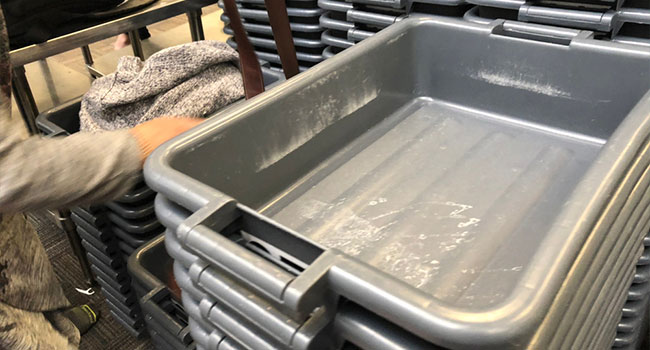
Travelers Can Take Larger Bottles of Hand Sanitizer In Carry-On Luggage, TSA Announces
In response to the growing concerns around the spread of coronavirus in the U.S., the Transportation Security Administration said that passengers can bring hand sanitizer containers up to 12 ounces in size.
- By Haley Samsel
- Mar 17, 2020
A new policy announced by the Transportation Security Administration on Friday allows travelers to bring hand sanitizer containers that are up to 12 ounces in size -- quite an increase from the usual 3.4 ounces that are usually allowed.
“TSA understands that COVID-19 (Coronavirus) is at the forefront on the minds of travelers, as health officials are encouraging that individuals wash their hands frequently,” the TSA said in a published post on its website. “With that in mind, TSA is allowing passengers to bring liquid hand sanitizer containers up to 12 ounces in carry-on bags until further notice.”
The change only applies to hand sanitizer, which has flown off the shelves across the country in the wake of the coronavirus pandemic. Over 4,000 cases have been confirmed in the U.S., which health officials say is a massive undercount of how many Americans have been infected due to people not having access to tests or not reporting symptoms to medical personnel.
Dollar sales of hand sanitizer in four weeks ending on March 7 surged 228 percent in comparison to the same time period in 2019, CNN reported. While airlines have reported a huge drop in the number of passengers boarding flights, those travelers can carry larger containers in their carry-on baggage.
At the same time, TSA agents said that those containers will be subject to additional screening, which could increase wait times. That caveat, along with the limited availability of hand sanitizer, has The Verge advising passengers to ask “How much sanitizer do you need with you?” before heading to the airport.
Airports across the country have also set up hand sanitizer stations, making it easier for passengers who do not want to carry large bottles on the plane with them.
Agents have also expressed concern about inadequate protection for security screeners who are coming into contact with hundreds or thousands of travelers per day. A union representing about 45,000 TSA officers demanded that the Department of Homeland Security provide more masks for agents to protect them from contracting the coronavirus, leading to some changes in CDC guidelines.
About the Author
Haley Samsel is an Associate Content Editor for the Infrastructure Solutions Group at 1105 Media.